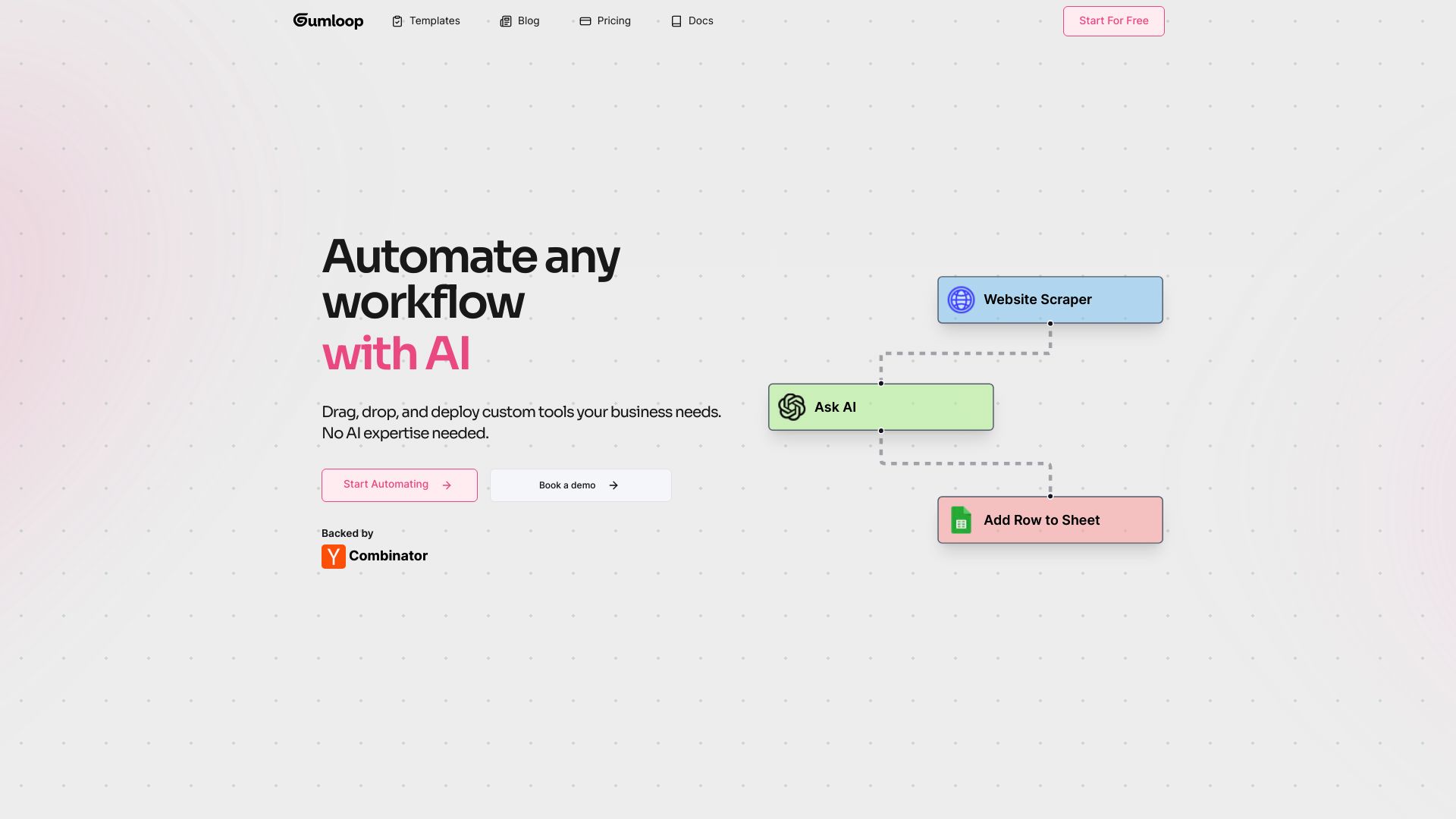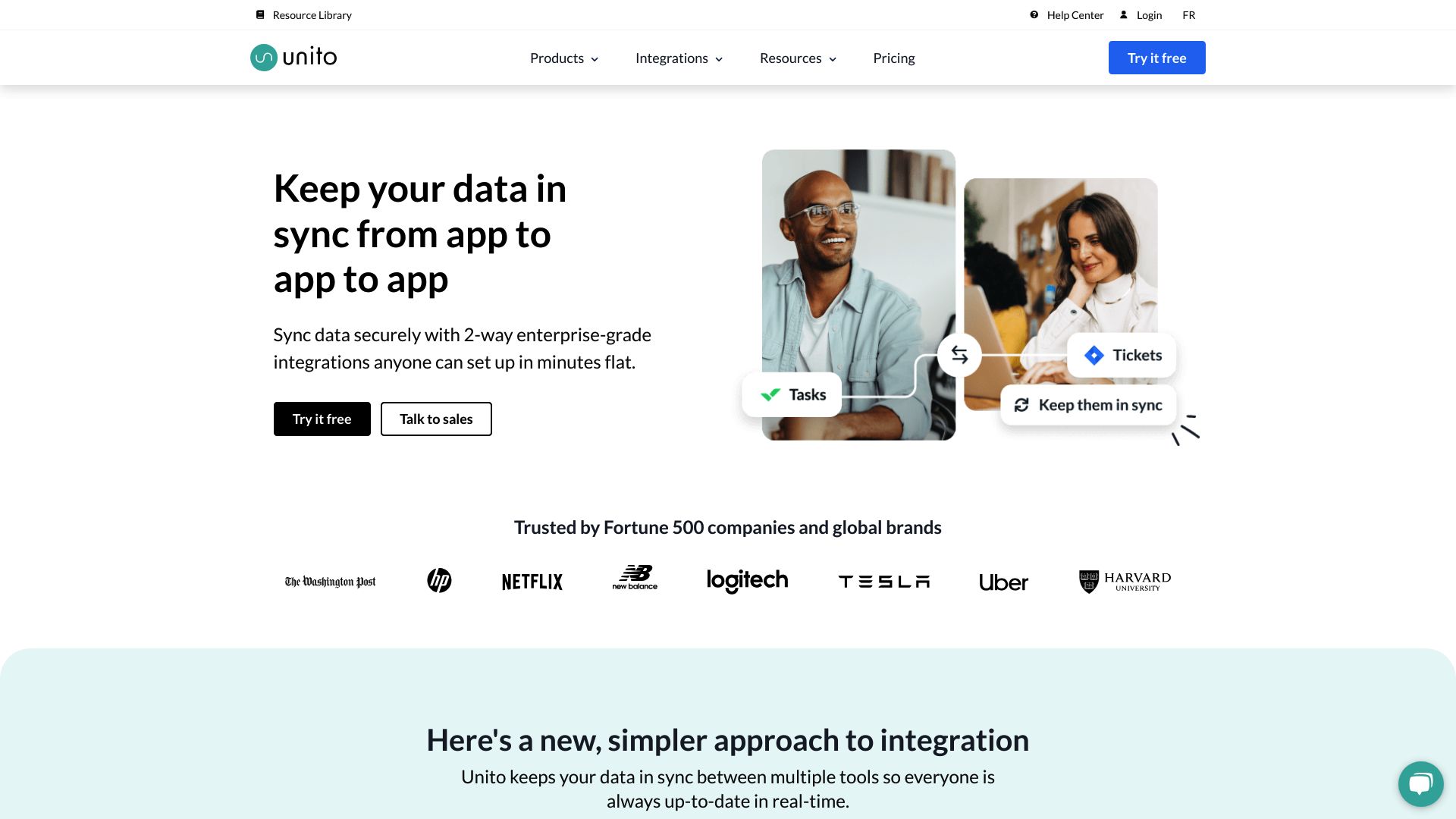AgentHub vs. Unito: AI Agents or Data Sync?
AI-powered automation and seamless tool integration have become essential for businesses seeking to optimize their workflows and boost productivity. Our comprehensive review compares AgentHub’s AI agent creation capabilities with Unito’s robust data synchronization features, highlighting how each platform addresses different aspects of modern workflow challenges.
We’ll explore their unique strengths, limitations, and use cases, providing insights to help you determine which solution best fits your organization’s needs. Additionally, we’ll introduce SmythOS, our cutting-edge platform that combines advanced AI agent building with extensive integration capabilities, offering a powerful alternative for businesses looking to harness the full potential of AI-driven automation and seamless tool connectivity.
AgentHub Overview
AgentHub empowers businesses to harness AI automation without coding expertise. The platform’s visual builder allows users to create customized AI-powered workflows through an intuitive drag-and-drop interface. AgentHub caters to various industries, offering pre-built automation templates for sales, CRM, web scraping, and software development.
AgentHub empowers businesses to harness AI automation without coding expertise. The platform’s visual builder allows users to create customized AI-powered workflows through an intuitive drag-and-drop interface.


AgentHub excels in providing a comprehensive suite of features for AI agent development and deployment. The platform supports both development and production environments, ensuring seamless transitions from testing to live implementation. AgentHub’s no-code editor enables users to build complex workflows effortlessly, while its memory and context capabilities enhance agent performance in tasks requiring continuity and understanding.
AgentHub excels in providing a comprehensive suite of features for AI agent development and deployment… ensuring seamless transitions from testing to live implementation.
The platform shines in its support for autonomous agents, multi-agent collaboration, and human-AI interaction. These features allow businesses to create sophisticated AI solutions that can work independently or in tandem with human operators. AgentHub also provides robust tools for debugging, monitoring, and analytics, giving users deep insights into their AI agents’ performance and behavior.
The platform shines in its support for autonomous agents, multi-agent collaboration, and human-AI interaction.
While AgentHub offers a wide array of capabilities, it’s worth noting that some advanced features like constrained alignment and IP control are not explicitly mentioned. However, the platform does prioritize security with data encryption and OAuth support. AgentHub’s integration capabilities extend to various APIs and support for robotic process automation (RPA), though specific integrations like Zapier are not highlighted. The platform’s deployment options are versatile, allowing users to implement their AI agents as APIs, webhooks, site chats, or scheduled tasks, catering to diverse business needs and use cases.
Unito Overview
Unito empowers teams to connect and synchronize data across various work management tools. The platform’s Sync Platform breaks down tool silos, enabling seamless collaboration and information flow between different applications.


Unito’s core strength lies in its real-time two-way sync technology. This feature ensures data consistency across connected tools, updating information instantly to keep teams aligned. The platform supports a wide range of popular tools, including Asana, Jira, Trello, and GitHub, making it versatile for various workflows and team structures.
Unito’s core strength lies in its real-time two-way sync technology. This feature ensures data consistency across connected tools, updating information instantly to keep teams aligned.
The platform stands out with its deep field configuration options, allowing users to customize syncing to match specific needs. This flexibility extends to custom field syncing, enabling the alignment of highly specialized data points across different tools. Unito also offers historical sync capabilities, integrating past data for comprehensive project insights.
Security-conscious organizations will appreciate Unito’s enterprise-level security measures, including SOC II Type 2 certification. The platform’s self-serve setup allows users to independently configure and initiate integrations, reducing reliance on IT departments and speeding up implementation.
While Unito excels in connecting existing tools, it doesn’t provide AI agent building capabilities in the traditional sense. Its focus is on workflow automation and data synchronization rather than creating autonomous AI agents. This limitation may impact users looking for advanced AI functionalities beyond data integration and workflow management.
Feature Comparison
AgentHub and Unito offer distinct approaches to workflow automation, with AgentHub focusing on AI-powered agents and Unito specializing in data synchronization. AgentHub provides a visual builder for creating customized AI workflows without coding, enabling autonomous agents capable of complex problem-solving. In contrast, Unito excels in real-time two-way syncing between different work management tools, breaking down silos between applications.
While both platforms offer no-code solutions, AgentHub’s AI capabilities extend to features like memory, context awareness, and multi-agent collaboration, which are not core focuses for Unito. AgentHub supports deployment options such as APIs, webhooks, and site chats, whereas Unito primarily facilitates data flow between existing tools. In terms of security, both platforms offer data encryption and OAuth support, but AgentHub’s AI-centric approach introduces additional considerations around constrained alignment and explainability.
Unito’s strength lies in its deep field configuration and custom field syncing, allowing for precise data mapping across diverse tools. However, it lacks the advanced AI functionalities and autonomous problem-solving capabilities that AgentHub provides. Our SmythOS platform combines the best of both worlds, offering AI agent building capabilities similar to AgentHub while also providing robust integration and synchronization features akin to Unito, making it a more comprehensive solution for businesses seeking both AI automation and seamless tool connectivity.
Feature Comparison Table
| AgentHub | Unito | SmythOS | |
|---|---|---|---|
| CORE FEATURES | |||
| Autonomous Agents | ✅ | ❌ | ✅ |
| Multimodal | ❌ | ❌ | ✅ |
| Human-AI Interaction | ✅ | ❌ | ✅ |
| Agent Work Scheduler | ✅ | ❌ | ✅ |
| SECURITY | |||
| Constrained Alignment | ❌ | ✅ | ✅ |
| Data Encryption | ❌ | ✅ | ✅ |
| OAuth | ❌ | ✅ | ✅ |
| IP Control | ❌ | ❌ | ✅ |
| COMPONENTS | |||
| Foundation AIs | ✅ | ❌ | ✅ |
| Huggingface AIs | ❌ | ❌ | ✅ |
| Zapier APIs | ❌ | ✅ | ✅ |
| Classifiers | ❌ | ❌ | ✅ |
| Logic | ✅ | ✅ | |
| Data Lakes | ❌ | ❌ | ✅ |
| DEPLOYMENT OPTIONS (EMBODIMENTS) | |||
| Deploy as Webhook | ✅ | ❌ | ✅ |
| Staging Domains | ❌ | ❌ | ✅ |
| Production Domains | ❌ | ✅ | ✅ |
| API Authentication (OAuth + Key) | ❌ | ✅ | ✅ |
| Deploy as Site Chat | ❌ | ❌ | ✅ |
| Deploy as Scheduled Agent | ✅ | ❌ | ✅ |
| Deploy as GPT | ❌ | ❌ | ✅ |
| DATA LAKE SUPPORT | |||
| Hosted Vector Database | ❌ | ❌ | ✅ |
| Sitemap Crawler | ❌ | ❌ | ✅ |
| YouTube Transcript Crawler | ❌ | ❌ | ✅ |
| URL Crawler | ✅ | ❌ | ✅ |
| PDF Support | ❌ | ❌ | ✅ |
| Word File Support | ❌ | ❌ | ✅ |
| TXT File Support | ❌ | ❌ | ✅ |
Best Alternative to AgentHub and Unito
SmythOS offers a comprehensive AI automation platform that combines the strengths of AgentHub and Unito while addressing their limitations. Our drag-and-drop interface enables users to create sophisticated AI workflows without coding, similar to AgentHub’s visual builder. However, SmythOS goes further by supporting multimodal agents capable of handling various data types, including images and text.
We provide seamless integration with popular tools and APIs, rivaling Unito’s synchronization capabilities while adding powerful AI functionalities. SmythOS excels in ease of use, offering pre-built components and templates that accelerate development for users of all skill levels. Our extensive feature set encompasses autonomous agents, multi-agent collaboration, and human-AI interaction — capabilities not fully realized in AgentHub or Unito.
SmythOS offers a comprehensive AI automation platform that combines the strengths of AgentHub and Unito while addressing their limitations.
Security is paramount, with SmythOS implementing robust measures like data encryption, OAuth, and IP control to protect sensitive information. SmythOS enables deployment across multiple environments, including APIs, webhooks, scheduled agents, and site chats. This flexibility, combined with our scalable architecture, allows businesses to adapt AI solutions to their specific needs effortlessly.
Unlike AgentHub and Unito, SmythOS provides comprehensive support for various data sources, including PDFs, Word documents, and web crawling. This empowers users to leverage diverse information in their AI workflows. By offering a unified platform for AI development, data integration, and workflow automation, SmythOS delivers unmatched versatility and efficiency. Our solution eliminates the need to juggle multiple tools, streamlining processes and reducing complexity for businesses seeking to harness the full potential of AI automation.
Conclusion
AgentHub and Unito offer distinct approaches to workflow automation, each with unique strengths. AgentHub excels in AI-powered agent creation, enabling complex problem-solving without coding expertise. Unito shines in data synchronization, breaking down silos between work management tools. While both platforms provide value, they cater to different needs in the automation landscape.
SmythOS emerges as the superior choice, combining the best aspects of both platforms and offering additional capabilities. Our platform provides AI agent building similar to AgentHub, coupled with robust integration features reminiscent of Unito. SmythOS goes further by offering unparalleled flexibility in deployment options, from APIs and webhooks to site chats and scheduled tasks.
What sets SmythOS apart is its comprehensive ecosystem of over 300,000 integrations, support for multiple AI models, and advanced features like multi-agent collaboration and explainable AI. These capabilities, combined with our user-friendly interface and scalable infrastructure, make SmythOS the ideal solution for businesses seeking to harness the full potential of AI automation.
We invite you to explore our diverse range of AI-powered agent templates and see how SmythOS can transform your workflow. Get started with SmythOS today and experience the future of AI-driven automation. With our platform, you’ll create once and deploy SmythOS Agents anywhere, revolutionizing your approach to AI integration and workflow optimization.
Last updated:
Disclaimer: The information presented in this article is for general informational purposes only and is provided as is. While we strive to keep the content up-to-date and accurate, we make no representations or warranties of any kind, express or implied, about the completeness, accuracy, reliability, suitability, or availability of the information contained in this article.
Any reliance you place on such information is strictly at your own risk. We reserve the right to make additions, deletions, or modifications to the contents of this article at any time without prior notice.
In no event will we be liable for any loss or damage including without limitation, indirect or consequential loss or damage, or any loss or damage whatsoever arising from loss of data, profits, or any other loss not specified herein arising out of, or in connection with, the use of this article.
Despite our best efforts, this article may contain oversights, errors, or omissions. If you notice any inaccuracies or have concerns about the content, please report them through our content feedback form. Your input helps us maintain the quality and reliability of our information.
